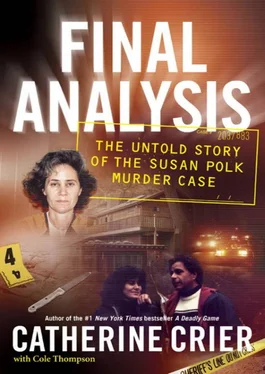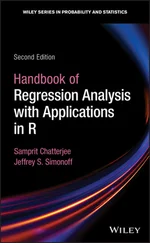When Felix declined, Susan said she offered to compromise. She would still move away. “They just ignored my offer. F. expects me to struggle…to negotiate over the children…. F. expects the children to accept his version of reality: mom is sick, mom is crazy…. He has offered to live in our cottage so that I can see Eli….
“At first, I pretended I would trade places with them and live in their cottage. But…I can’t live there…. Berkeley is such a cynical community of smug, self-satisfied university people. I would suffocate…. It was a mecca for people like F. who saw themselves as the cleverest, lightest, fittest in the fifties and the sixties….”
Susan noted that in the same week Eli was sentenced, she learned that her mother had cut her out of the will. “I lost my home, my children. I am looking forward to never setting foot in this country again.”
In addition to her diary, Susan’s writings included a number of postcards and letters that she mailed to Eli at Juvenile Hall while en route to Montana in the fall of 2002. These would be her last correspondences until after Felix’s death.
“Sun Valley is pristine (undeveloped) and like a Hollywood set—picture perfect,” Susan wrote in a postcard dated September 22 from Salmon, Idaho. “But there are too many Hollywood people there. Am moving on.”
Another postcard to Eli read: “I hope to find a place I feel comfortable in. I can see it in my imagination. No crowds. Lots of trees. Animals. Empty roads. Rivers. Clear skys [sic]. Privacy. You will come to see me there when you are free to do so.”
Susan wrote to her divorce attorney, Dan Ryan, as well. In the letter, she reacted to news of the September 27 telephone conference in which the Contra Costa Superior Court judge awarded Felix “legal and physical custody of Gabriel” and “exclusive use and occupancy of the family residence located at 728 Minor Road.”
“I object to holding the hearing scheduled for Wednesday in my absence,” Susan said of the judge’s decision to schedule a follow-up hearing for October 3. “Please request that the hearing be postponed until I can return. The issues to be addressed might reasonably be resolved outside of court, those issues being spousal support, custody, and family support…. I left Gabe with Felix while I was looking for a home.
“Meanwhile, it is impossible for me to bid on a family residence when I have lost physical custody of Gabe and when my support award is subject to Felix’s whimsy. Whether or not I have physical custody of Gabe will determine whether or not I buy a residence. The amount of support I can expect to receive reliably will have bearing on where I choose to settle as well as what kind of home I will buy.”
Susan asked that the attorney make a motion on her behalf to have the physical custody order rendered that Friday vacated.
“I have not abandoned Gabe,” she noted.
Susan went on to explain that she had identified several affordable properties and was arranging to have Gabe fly out to Montana to see them. She noted that it would be impossible for her to proceed with negotiations for the purchase of a home until she learned for certain that she could have her children with her.
In a follow-up letter dated October 3, Susan fired Dan Ryan and then set off for California. Angry that the scheduled hearing occurred despite her objections, Susan blamed Ryan for his role in the events.
In subsequent entries made upon her return to Orinda, Susan claimed that she and Felix had reached “some verbal agreements”; they were $170,000 in debt and couldn’t afford to have one of them occupying the apartment in Berkeley, as that would be a loss of $2,400 a month in rental income, she wrote. They agreed that one of them should stay in the guesthouse, but the question remained: which one? Susan felt that it should be Felix, while her husband felt he had won the right to reside in the sprawling estate and was unwilling to compromise.
These discussions of their tentative oral agreement proved to be the last of the rambling, often confused entries in Susan Polk’s diary. While Susan’s writings chronicled events as she viewed them, as well as her growing dislike of her husband, they contained no evidence that she was plotting his murder. The diary merely revealed page after page of motive, providing insight into Susan in the months and years predating Felix’s murder. The lengthy memoir failed to provide the “smoking gun” police had anticipated when they listed it as part of the October 15 search warrant of the Miner Road residence.
Despite the inherent bias in the pages, the reality that they detailed was unsettling. The years of abuse and emotional scarring were apparent on both sides, and regardless of their history, it was clear that both Felix and Susan were growing tired of the status quo. And yet, Susan did not seem like a person on the edge of murder—particularly in her last entries where there is little to suggest that she was a woman who was about to be pushed too far. In the end, the diary created more questions than answers, and chief among them was—why had all this happened now? While Susan was still irate over the actions that took place in her absence, her final entries show a woman whose divorce was on the path to settlement. Her pragmatic, conciliatory tone when discussing Felix’s financial situation didn’t show a woman who was sharpening her knives; they showed a woman who had finally come to the table.
But in spite of their progress, many sticking points remained, including the role that the cottage would play in their lives. One of them had to give up claim to the main home and move to the guesthouse. It was a dispute that would last until the very end.
Chapter Eighteen
THE REAL FELIX?
“Dear Mom, I’m going to Dad’s funeral this Saturday,” Eli wrote to Susan from juvenile hall on November 5, 2002. “I don’t think I am going to say anything. What would I possibly have to say about him? Nothing good.”
Eli made good on his word. He was granted permission from juvenile officials to attend the November 9 memorial service for his father at Christ the King Parish in Pleasant Hill. With his close-cropped hair and broad shoulders, the teen was easily identifiable in the sanctuary’s front pew, where he sat shoulder to shoulder with his siblings, Adam and Gabriel.
Although Felix was Jewish, his funeral could not be held immediately after his death as is the Jewish custom; police insisted on an autopsy as part of the murder investigation. Once the autopsy was performed, it would be another three weeks before the memorial service was held. Felix was not a practicing Jew and had even gone so far as to tell Adam that he was an agnostic. Still, Susan had felt it was important for her sons to know about their father’s heritage and orchestrated the Jewish holidays at their home in an attempt to honor both her faith and that of her husband’s family. Sometimes the Polks celebrated Christmas and other times they celebrated Hanukah—with no discernible pattern.
After some discussion, it was decided that the funeral would be held at Christ the King Parish, a small Catholic house of worship in San Francisco’s East Bay, and funded, at least in part by Argosy University where Felix taught. Mourners arriving at the church on Brandon Road that autumn day were momentarily taken aback by the psychedelic rock and roll music that filled the sanctuary. Adam had chosen the song, “Wish You Were Here,” the 1975 hit from the British rock band, Pink Floyd, to kick off the service, although it was not clear why Adam selected that track to memorialize his father; perhaps it was because Pink Floyd was a group that Felix counted among his favorites.
As the words of the song droned from overhead speakers, old family photos of Felix flashed onto two large screens set up on either side of the altar: a young Felix embracing his infant son from his first marriage, playing cello accompaniment to his first wife, Sharon Mann, and another of Felix trekking outdoors and carrying a child on his back. The pictures elicited smiles and laughter from those who came to pay their final respects to the slain therapist. There was silent anticipation that one of the photos would contain an image of Felix’s spouse and alleged killer, but the photomontage had been edited to exclude any photos of Susan Polk.
Читать дальше











